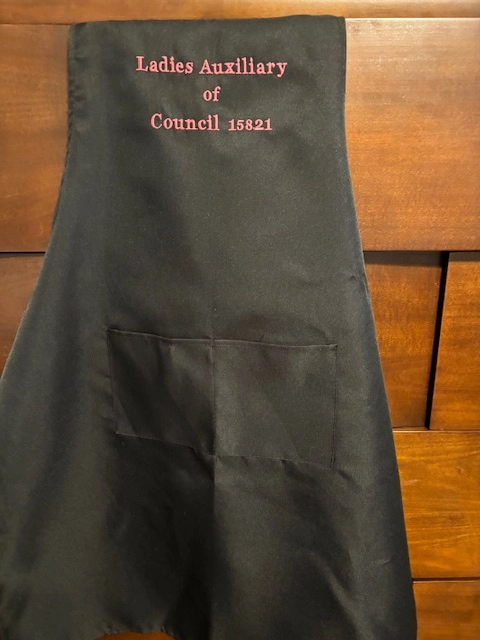The Art of Custom-made Needlework: Opening the Secrets to Creating One-of-a-kind and Memorable Layouts
The keys to creating custom embroidery styles that captivate the eye and leave a lasting perception lie in a fragile balance of method, imagination, and interest to detail. As we dig into the world of personalized needlework, we reveal the nuanced interplay between thread option, stitch complexity, and style personalization that boosts a mere garment to a job of art.
Picking the Right Needlework Threads
When selecting embroidery strings, what crucial variables should you think about to guarantee the ideal results for your custom layouts? The selection of embroidery thread is important in identifying the last end result of your stitched style.
Furthermore, the weight or thickness of the thread plays a significant function in the appearance of the embroidery. Thicker strings can add dimension and texture to your style, while finer strings are ideal for intricate information and little message. Furthermore, thinking about the color fastness and washability of the thread is important to make certain that your custom layouts keep their high quality and vibrancy in time. By carefully assessing these factors and choosing high-grade threads that fulfill your particular needs, you can boost the visual charm and long life of your stitched productions.
Checking Out Different Stitch Methods
To dig into the world of 'Checking out Different Stitch Techniques', one have to realize the details and nuances that each sewing technique offers the art of embroidery. Different stitch techniques not just add aesthetic interest however also contribute to the overall texture and dimension of the style. One prominent stitch technique is the satin stitch, which includes carefully stuffed parallel stitches to create a smooth and glossy surface area, ideal for filling out forms and producing bold details.
On the various other hand, the backstitch is a flexible method commonly made use of for outlining and adding great details. It entails sewing backwards to produce a solid line of needlework. In addition, the French knot stitch adds a responsive component to layouts, excellent for developing distinctive accents like flower facilities or ornamental touches.
Exploring different stitch methods allows embroiderers to have fun with light, darkness, and depth within their styles, elevating the visual allure and creative quality of their needlework jobs. By understanding numerous stitching methods, one can open unlimited possibilities for developing one-of-a-kind and remarkable custom-made embroidery items.
Incorporating Personalized Design Aspects
Having explored the details of various stitch strategies such as the satin stitch, backstitch, and French knot, the emphasis now changes in the direction of integrating personalized style aspects in personalized embroidery tasks. Customized layout components play a critical duty in making needlework jobs truly unique and unforgettable. One means to integrate customization is by adding initials, names, or considerable days to the style. This not only includes a personalized touch but additionally improves the sentimental worth of the embroidery piece.
Another way to integrate individualized design aspects is by consisting of icons or concepts that hold special meaning to the recipient or reflect their passions and individuality. Incorporating a favorite blossom, pet, or hobby-related sign visit this site can make the needlework design a lot more meaningful and personalized. Additionally, selecting colors that reverberate with the recipient or straighten with the desired motif can further enhance the customization of the embroidery project.
Grasping the Art of Color Coordination
One trick element of shade sychronisation is understanding color concept. This consists of understanding exactly how different shades communicate with each various other, the emotions they convey, and how they can be combined to produce visually attractive designs. By using color theory concepts, embroiderers can produce unified color schemes that boost the overall look of the design.
Furthermore, taking notice of comparison is critical in shade coordination. Making use of contrasting shades can aid certain components of the design pop, enhance legibility, and develop an aesthetically vibrant embroidery piece. By understanding the art of shade coordination, embroiderers can elevate their designs and develop memorable items that reverberate with customers and audiences alike.
Enhancing Structure With Advanced Embroidery Stitches

French knots, for instance, are best for including small, raised dots to your layout, mimicking the look of beads or developing a textured surface. Bullion knots, on the various other hand, can be used to create twisted, ropelike elements that add an elegant feeling to the embroidery. Seed sewing entails small, scattered stitches that can fill out areas with a polychromatic structure, while turkey work creates cosy, dimensional accents evocative animal hair or vegetation. Trying out these advanced embroidery stitches allows you to press the borders of typical embroidery and produce really distinct and visually enticing appearances in your designs.
Verdict
To conclude, the art of customized needlework includes a mix of choosing the ideal strings, discovering numerous stitch techniques, including customized style elements, mastering shade sychronisation, and enhancing appearance with sophisticated stitches. By understanding and applying these key aspects, embroiderers can develop distinct and remarkable designs that showcase their creative thinking and ability. Needlework enthusiasts can open the tricks to producing attractive and custom pieces that stand drapery alterations near me apart and leave an enduring impact.